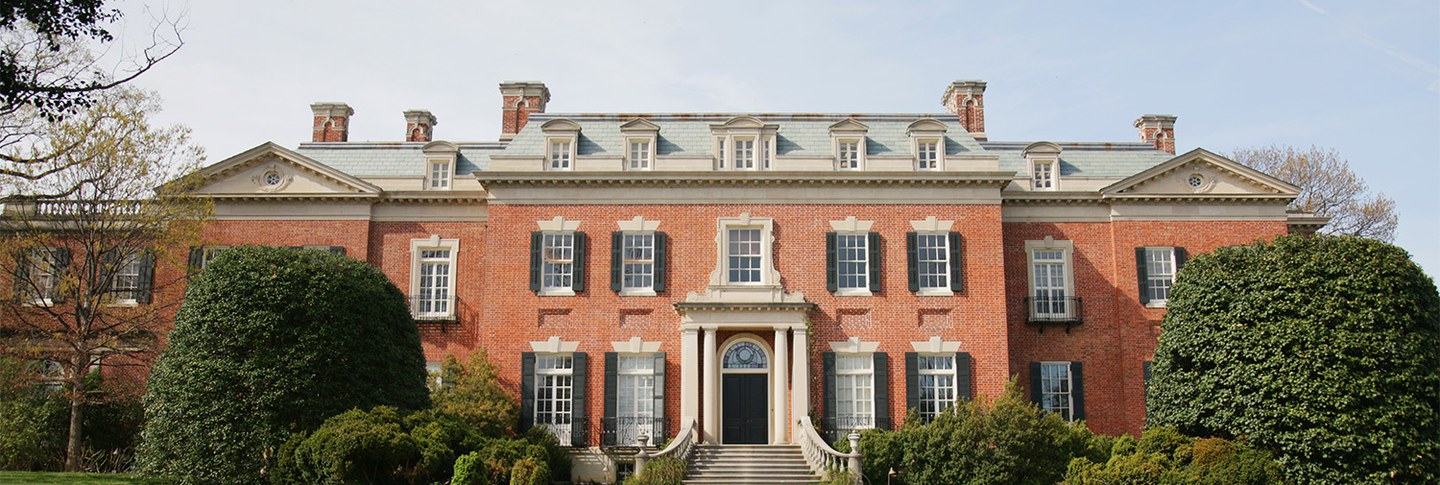For Immediate Release
September 20, 2019
Media Contact:
Erica Bogese
Communications Manager
(202) 749-8978
bogesee@doaks.org
WASHINGTON – Dumbarton Oaks has appointed Dr. Frauke Sachse as the Dumbarton Oaks Program Director in Pre-Columbian Studies. Starting on September 3, 2019, she will oversee and coordinate all programming connected with Pre-Columbian Studies (PCS) at Dumbarton Oaks, including the residential fellowship program, scholarly visitors and events, and senior fellow meetings.
Formerly Assistant Professor of Pre-Columbian Studies (Altamerikanistik) at the University of Bonn, Sachse earned a PhD in Linguistics from Leiden University and MA in Anthropology/Pre-Columbian Studies, Archaeology, and English, from the University of Bonn. Her research interests concern the languages, linguistics, indigenous histories, and religions of Mesoamerica, with a current focus on aspects of translation in the missionary and indigenous text sources from Highland Guatemala. She is contributing to several international translation and editing projects of textual resources in Highland Maya languages. Her research on the written heritage has been supported by fellowships from the Library of Congress (2016-17), the Dumbarton Oaks Research Library (2012-13), and the Princeton University Library (2007). Sachse served as Consulting Scholar for the University of Pennsylvania Museum of Archaeology and Anthropology, American Section, as well as the President of the European Association of Mayanists.
Sachse is the author of Reconstructive Description of Eighteenth-century Xinka Grammar (LOT 2010), edited Maya Ethnicity – the Construction of Ethnic Identity from the Preclassic to Modern Times (Saurwein 2006), co-edited with Holley Moyes and Allen Christenson The Myths of the Popol Vuh in Cosmology, Art, and Ritual (University of Colorado Press in press), co-authored with John M. Weeks and Christian M. Prager Maya Daykeeping: Three Calendars from Highland Guatemala (University of Colorado Press 2009), and co-authored with Michael Dürr Diccionario k'iche' de Berlín: El Vocabulario en lengua 4iche otlatecas (Ibero-Amerikanisches Institut/Gebr. Mann Verlag 2017).
“Frauke Sachse’s appointment brings me great pleasure,” says Jan Ziolkowski, Director of Dumbarton Oaks. It coincides with a heightened resolve to strengthening teamwork inside Dumbarton Oaks and to increasing access to our resources. Her directorship speaks to the remarkable breadth of Pre-Columbian Studies, notably in its disciplines and demographics.”
###
About Dumbarton Oaks
Dumbarton Oaks is a Harvard research institute, museum, and historic garden and located in Washington, DC. The institution is the legacy of Robert and Mildred Woods Bliss, collectors of art and patrons of scholarship in the humanities. The museum houses world-class collections of Byzantine and Pre-Columbian art, two areas of interest to the Blisses. A third revolves around the historic garden, which Mildred Bliss created in close collaboration with renowned landscape designer Beatrix Farrand. Since 1940, when the Blisses gifted the estate and collections to Harvard University, Dumbarton Oaks has supported research in the three areas of Byzantine, Pre-Columbian, and Garden and Landscape Studies through a fellowship program and other awards; scholarly conferences; publications; and digital initiatives. In recent years, Dumbarton Oaks has also developed collection-based educational programs for DC students.
The founders, Robert Woods Bliss and Mildred Barnes Bliss, called upon future policy-makers “to remember that Dumbarton Oaks is conceived in a new pattern, where quality and not number shall determine the choice of its scholars; that it is the home of the Humanities, not a mere aggregation of books and objects of art; that the house itself and the gardens have their educational importance and that all are of humanistic value.” These ambitions continue to guide Dumbarton Oaks, but with close attention to ensuring that the Blisses’ “new pattern” retains its vitality through constant renewal.
The research institute’s location in Washington, DC, is no accident. Robert Bliss was a diplomat who enjoyed a distinguished career in the Foreign Service and eventually served as Ambassador to Argentina. Dumbarton Oaks is known for hosting the Dumbarton Oaks Conversations, a series of important diplomatic meetings in 1944, at the height of the Second World War, whose outcome was the United Nations charter that was adopted in San Francisco in 1945. At these meetings, delegations from China, the Soviet Union, the United Kingdom, and the United States deliberated over proposals for the establishment of an organization to maintain peace and security in the world.
The historic garden and museum are the public face of Dumbarton Oaks and receive thousands of visitors each year. The garden is perhaps the last remaining landscape in North America that hews closely to the original Farrand design; it was voted by National Geographic one of the ten best gardens in the world. Buildings of architectural importance on the Dumbarton Oaks campus are the Pre-Columbian Pavilion, the museum wing housing the Pre-Columbian Collections, designed by Philip Johnson and completed in 1963, and the research Library designed by Venturi, Scott, Brown and completed in 2007.
Visiting the Museum
The Dumbarton Oaks Museum is free and open to the public, located at 1703 32nd Street, NW, Washington, DC. Museum hours: Tuesday—Sunday, 11:30 am to 5:30 pm. The Museum is closed Mondays and major holidays.
Learn more at www.doaks.org

